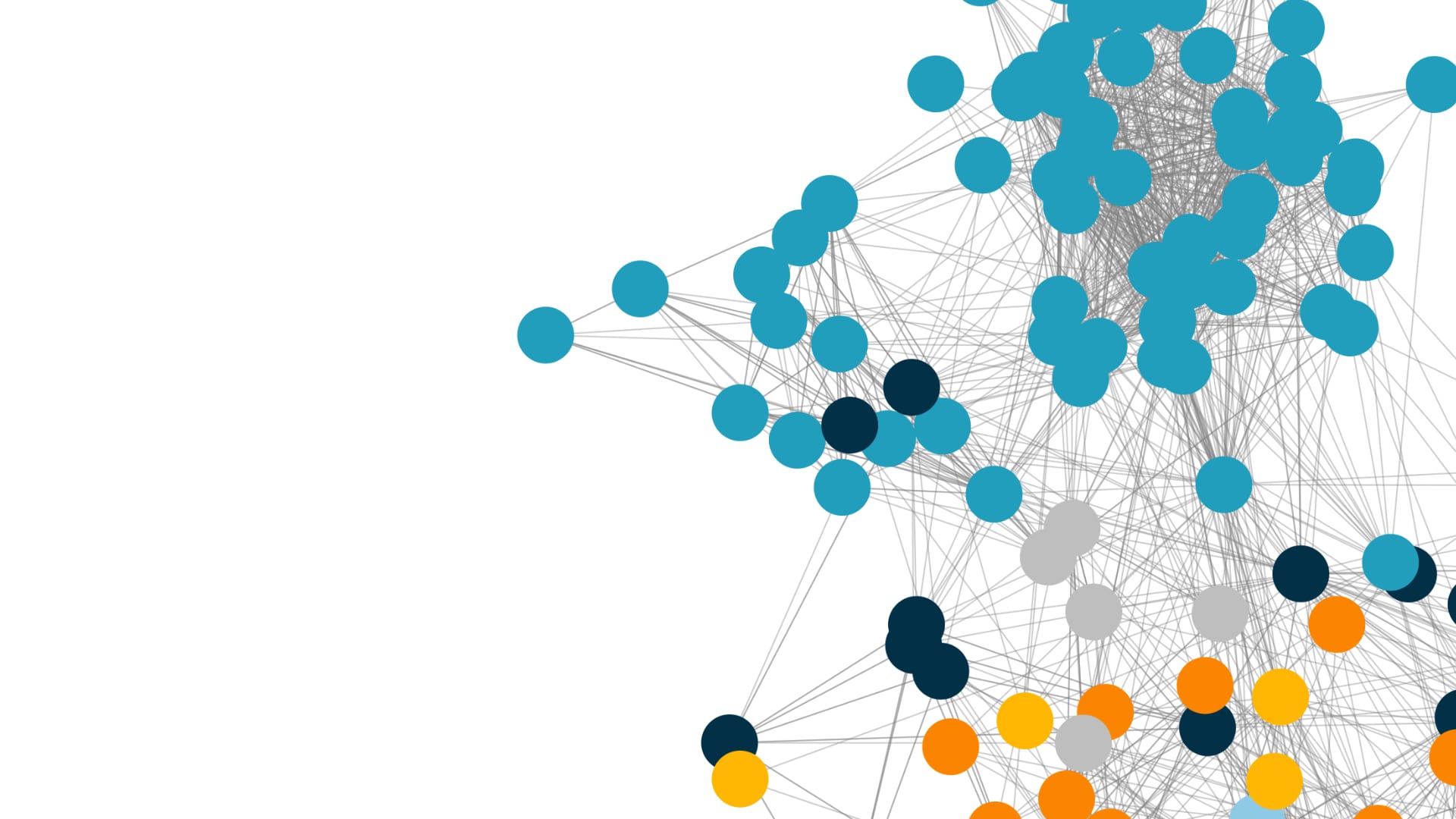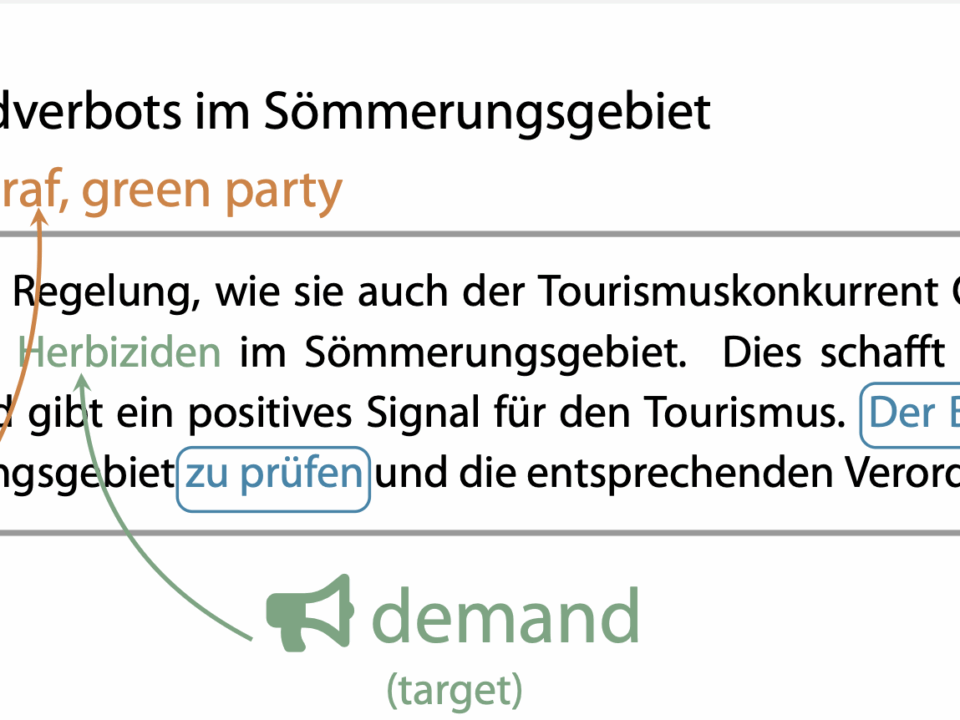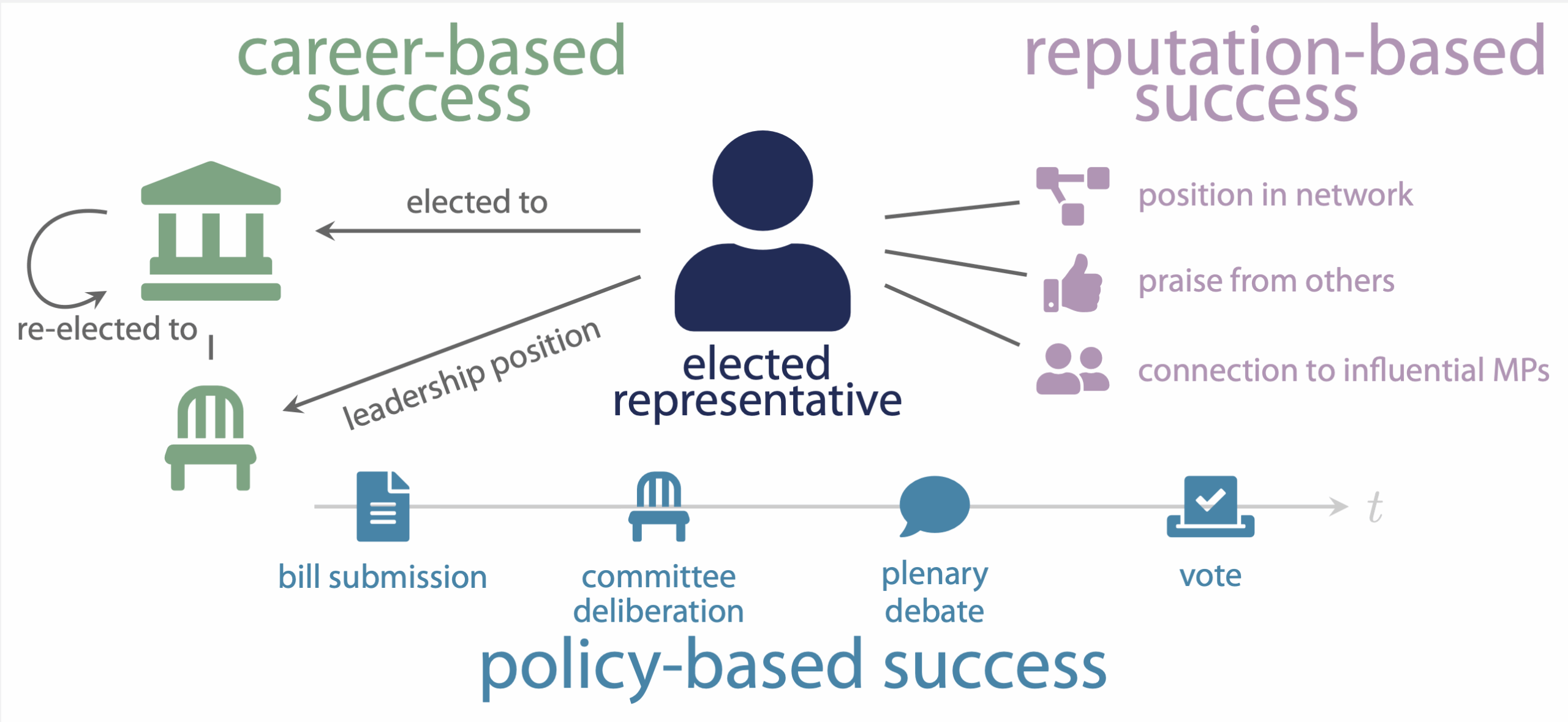I study legislative behavior and parliamentary networks.
I am particularly interested in the temporal dynamics of political actors working together, for instance looking at how long it takes for a member of parliament to reciprocate a favor by a colleague. Furthermore, I study how political actors change their political positions over time and influence each other.
My Research
Avenues
Priority 1How Social are Political Decisions?
One of the key aspects of my research lays in understanding how social relations impact (political) decision-making. This question is particularly relevant for elected representatives, as they have a clear mandate to represent their constituency. Yet, in order to advance their agenda these representatives need to bond together. How do these social ties they form affect their decisions? Finding the answer to this question is key in developing new interventions (i.e., designing policy forums where opposing actors meet and exchange their views and plans) to help alleviate polarization dynamics and the rightward shift in western democracies.Priority 2How do Spill-Overs Affect Political Decisions?
The political science community still builds strongly on case study evidence. While this research methodology often yields specific answers to the questions posed, they do leave one aspect out: the bigger picture. Political decision-making (especially in legislative politics) is multi-faceted and involves both a temporal dependency (i.e., decisions build upon one another) and an issue dependency (i.e., political issues are linked and sometimes affect each other). How to these temporal and issue dependencies affect political decision-making? This question demands a systemic perspective in its answering process. This question can only be answered empirically if the data is large enough, spanning decades and multiple policy sectors---the DemocraSci Knowledge Graph is a prime example. Furthermore, it demands causal tracing of spill-over effects, which in turn, demand for causal network analysis, a field that is only now beginning to develop and which I plan to advance significantly.Priority 3How can we Make Democracies more Transparent?
A career goal of mine is to strengthen transparency in political decisions. Research has shown that transparency is a key factor in reversing electoral decline and citizen involvement in politics. Strong democracies rely on informed citizens. If the information is too cumbersome to come by, most people will not find time to engage in political decision making processes, even if they directly affect them or their surroundings. This is why we have started working on the DemocraSci Knowledge Graph. The database follows an intuitive design and allows us to explore interdependencies in politics. I envision a DemocraSci platform that helps citizens gain a quick overview over (national) politics and understand what their representatives are working on.

Research Blog
Here, I collect article summaries, random code snippets and things from the science world I enjoy.
April 10, 2025
We have excellent news! Sophia and I were granted a SDSC grant to study political advocacy! This is such a wonderful opportunity to continue our long-standing […]
October 20, 2024
We have received an SNF grant to study political performance of Swiss members of the parliament from the SNF! Check out our SNF-project site here: https://data.snf.ch/grants/grant/10003190 […]
June 4, 2024
I’ve taken a position as a Postdoctoral Researcher in the Department of Political Science at the University of Zürich. I’m so excited to move to the […]


